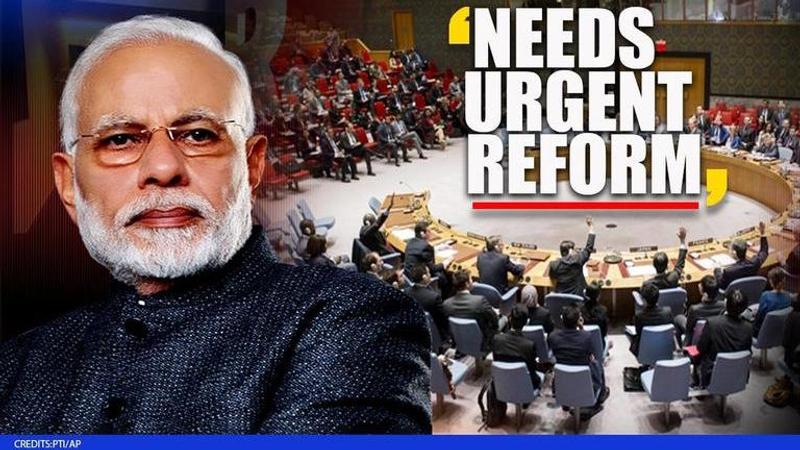Published 12:09 IST, June 19th 2020
India sets wheels in motion; says will intensify engagement for UN Security Council reform
India will intensify its engagement at the United Nations to move the long-pending Security Council reform process forward as the UNSC’s current structure no longer reflects the geopolitical realities of the 21st century, according to the country’s envoy at the world body.

India will intensify its engagement at the United Nations to move the long-pending Security Council reform process forward as the UNSC’s current structure no longer reflects the geopolitical realities of the 21st century, according to the country’s envoy at the world body. India has been at the forefront of efforts at the United Nations to push for an urgent long-pending reform of the Security Council, emphasising that it rightly deserves a place at the UN high table as a permanent member.
India’s Permanent Representative to the UN Ambassador T S Tirumurti told PTI: “We are of the view that Council’s membership no longer reflects the geopolitical realities of the 21st century and needs urgent reform. This is one of our five priorities we have set out”.
His remarks came after India on Wednesday overwhelmingly won the election to the Security Council for a non-permanent seat. While the Security Council needs reform, the Council itself is not initially the forum for discussing it, Tirumurti said, adding that as per the 2008 General Assembly resolution, the Security Council reforms will be discussed by the member states at the Intergovernmental Negotiation (IGN) process in an informal plenary of the General Assembly.
The General Assembly has renewed the mandate of the IGN annually, and it remains the principal vehicle for Council reform discussions today, he said. Noting that it has been 11 years since the first round of the IGN was held on February 19, 2009, he said this is "clearly a very unsatisfactory situation."
“We will intensify our engagement with all reform-minded member states and groups” such as the G4 bloc of Brazil, Germany, India and Japan, the Africa group, L.69 group of developing countries, the African Union Committee of 10 (C10) and "explore ways and means of taking the discussions forward in the IGN."
India, the endorsed candidate from the Asia-Pacific States grouping, garnered 184 votes out of the total 192 polled in the Security Council elections on Wednesday in the UN General Assembly. Along with India, Norway, Ireland and Mexico will join the Security Council as the non-permanent members for a two-year term beginning January 1, 2021. This is the eighth time that India will sit at the Council’s horseshoe-shaped table. Previously, India was elected for the years 1950-1951, 1967-1968, 1972-1973, 1977-1978, 1984-1985, 1991-1992 and most recently in 2011-2012.
In 2021, India, Norway, Ireland and Mexico will sit in the most powerful UN organ along with the five permanent members -- China, France, Russia, the UK and the US as well as non-permanent members Estonia, Niger, Saint Vincent and the Grenadines, Tunisia and Vietnam. The two-year terms of Belgium, Dominican Republic, Germany, Indonesia and South Africa are ending this year.
Tirumurti said last week that as the UN commemorates its 75th anniversary this year, “it is clear to us that United Nations and indeed multilateralism itself need to change to reflect the contemporary realities to enable them to remain effective and credible.” The Indian envoy referred to Prime Minister Narendra Modi’s call for a reformed multilateralism and the reform of multilateral system as essential to ensure that the international system is inclusive and caters to the requirements of all countries, which will in turn facilitate a stronger action.
“We also believe that the current crisis that we face, especially in the context of COVID-19, provides the seed for new opportunities,” Tirumurti had said.
Updated 12:09 IST, June 19th 2020




